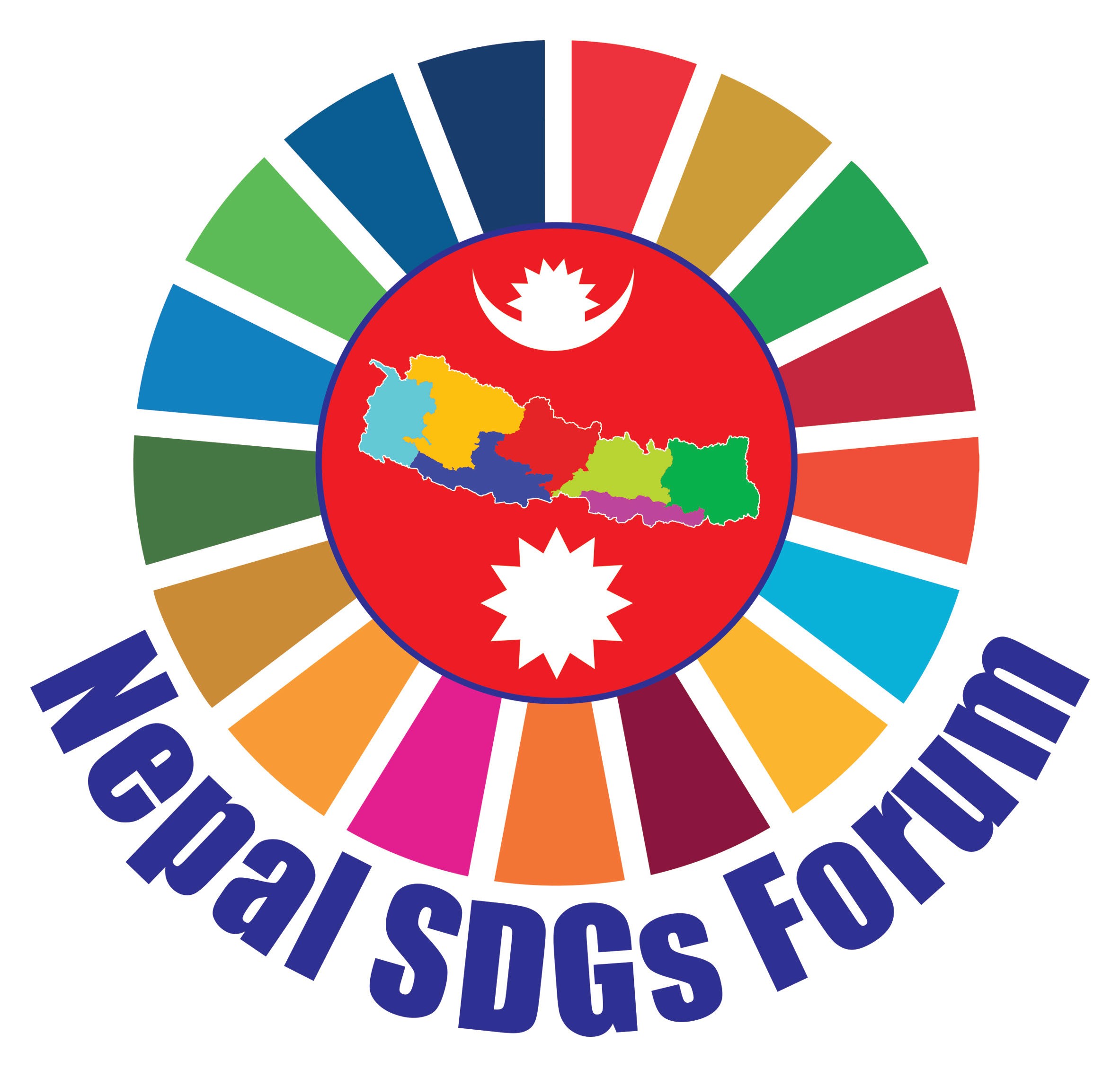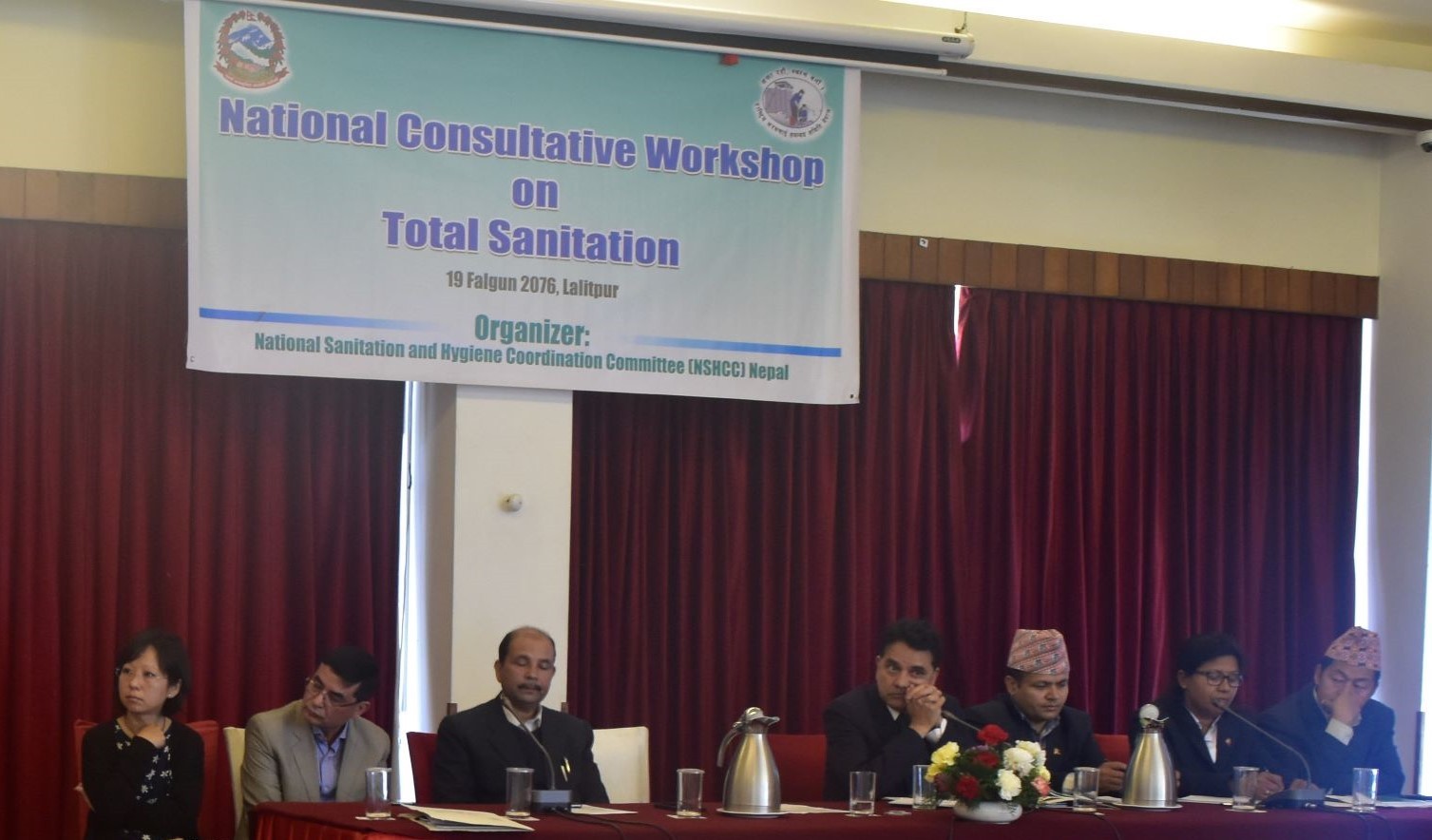National Consultative Workshop on Total Sanitation Held
The Department of Water Supply and Sewerage Management (DWSSM) under Ministry of Water Supply with supports from NGO Federation of Nepal and Water Aid Nepal organized a national consultative workshop on total sanitation. The workshop also included discussions on SDG 6: Ensure availability and sustainable management of water and sanitation for all. Chaired by Ramakant Duwadi, Chair of National Hygiene and Sanitation Coordination Committee (NHSCC), and with Madhav Belbase, Secretary of Ministry of Water and Sanitation, as the chief guest, the workshop was held in Lalitpur on 2 March 2020.
The workshop had participation of representatives from water and sanitation sections of all seven provinces, concerned government agencies at the central level, development partners and stakeholders working on water and sanitation. The workshop had opening session with remarks from guests and key individuals, presentations on water and sanitation status by province representatives, group work and presentations and finally way forward. The group works were focused on four specific aspects: 1) role and structure of three tiers of governments for total sanitation, 2) indicators for monitoring and verification mechanisms, 3) process, working modality and steps, and 4) multi-stakeholder linkages and coordination.
Some of the guests who made opening remarks included Bishnu Dutta Gautam from Ministry of Federal Affairs and General Administration (MoFAGA), Secretary of Ministry of Water and Sanitation Madhav Belbase, and Ramakant Duwadi, Chair of NHSCC. They pointed out the need of availability, access and management of public toilets; waste disposal and management; availability of water to drink and to clean; coordinated and coherent efforts at all levels both horizontally and vertically among government and non-government stakeholders; awareness and behavior change; collection, management and utilization of data; setting targets and then monitoring and evaluation; faecal management; alignment and coherence with SDG 6; scaling up and utilizing the lessons from ODF campaigns; use of innovations and technology in waste management and sanitation; and coordination and collaboration for the shared objectives.
The representatives of the water and sanitation sections of all the seven province level governments shared their status and plans on water and sanitation. The status and plans they shared were not encouraging enough since most of the provinces were found backward in terms of policies, plans, implementation, infrastructures, data, resources. There was not clarity in roles and responsibilities between ministry of physical infrastructure development and ministry of social development. However, on the positive side, some of the local governments and provinces had taken initiatives that include WASH committees, WASH plans, and awareness raising. In order to accelerate the progress towards total sanitation and localizing and meeting SDG 6 at the province and local levels, it was found necessary to make structural or institutional reforms, define the criteria of total sanitation, form WASH committees down to the ward levels, collect and manage data, streamline the efforts to contribute to meeting SDG 6, and forge closer coordination.
The brainstorming and presentations of the four different working groups were presented with comments and feedback. These products are documented and will be taken ahead for further verification and policy feedback.

